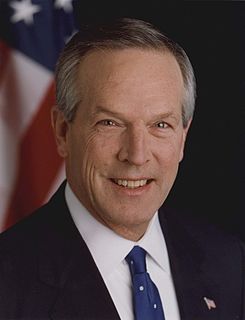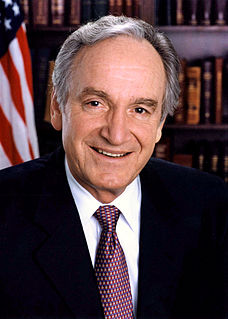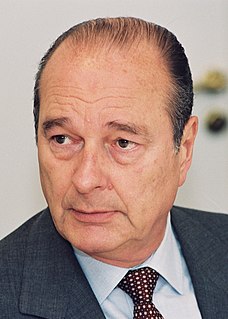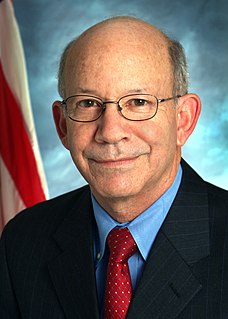A Quote by Donald Evans
As far as Iraq is concerned, let's not forget what the UNSCR is about, that the main consideration in Iraq is that there is a leader who has been developing weapons of mass destruction, and has been violating UN resolutions for over a decade.
Related Quotes
Whereas Iraq has consistently breached its cease-fire agreement between Iraq and the United States, entered into on March 3, 1991, by failing to dismantle its weapons of mass destruction program, and refusing to permit monitoring and verification by United Nations inspections; Whereas Iraq has developed weapons of mass destruction, including chemical and biological capabilities, and has made positive progress toward developing nuclear weapons capabilities
Change of regime with respect to Iraq had nothing to do with this; it had everything to do with the fact that Iraq had weapons of mass destruction. And at the time change in regime as a policy came into effect in 1998, it was seen as the only way to compel Iraq to get rid of its weapons of mass destruction.
As far as France is concerned, we are ready to envisage everything that can be done under UNSCR 1441. [...] But I repeat that every possibility offered by the present resolution must be explored, that there are a lot of them and they still leave us with a lot of leeway when it comes to ways of achieving the objective of eliminating any weapons of mass destruction which may exist in Iraq. I'd like nevertheless to note that, as things stand at the moment, I have, to my knowledge, no indisputable proof in this sphere.
Iraq does pose a serious threat to the stability of the Persian Gulf and we should organize an international coalition to eliminate his access to weapons of mass destruction. Iraq's search for weapons of mass destruction has proven impossible to completely deter and we should assume that it will continue for as long as Saddam is in power.
It is inherently dangerous to allow a country, such as Iraq, to retain weapons of mass destruction, particularly in light of its past aggressive behaviour. If the world community fails to disarm Iraq we fear that other rogue states will be encouraged to believe that they too can have these most deadly of weapons to systematically defy international resolutions and that the world will do nothing to stop them.
Our President feels, and apparently many in the United Nations Security Council feel, that it is necessary to disarm Iraq before Iraq can again use weapons of mass destruction on her neighbors or she makes some liaison with terrorists who will use these weapons either against Iraq's neighbors or ourselves.
And whatever their publicized angst over Saddam Hussein's 'weapons of mass destruction,' American and British authorities were also concerned about violence in an area that harbors a resource indispensable for the functioning of the word economy. I am saddened that it is politically inconvenient to acknowledge what everyone knows: the Iraq war is largely about oil.

































